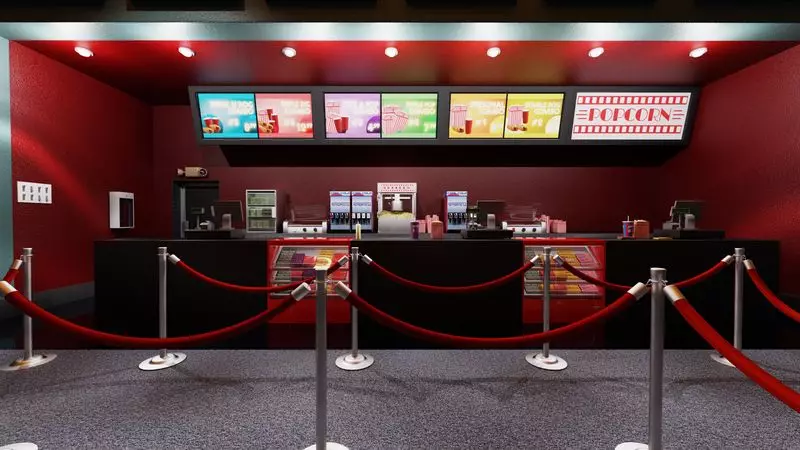
Across India's bustling cities, a quiet revolution is brewing inside multiplex theaters. Moviegoers are increasingly pushing back against what many describe as exorbitant and unfair pricing for basic food items like popcorn, soft drinks, and nachos.
The Staggering Cost of Cinema Snacks
A recent analysis reveals shocking disparities between retail prices and what multiplexes charge for identical products. A medium popcorn that costs approximately ₹70 to produce sells for an astonishing ₹400 to ₹450 in major cinema chains. Similarly, a 500 ml bottled water priced at ₹20 in regular stores carries a ₹80 to ₹100 price tag once inside theater premises.
This pricing strategy isn't limited to snacks alone. Carbonated drinks follow the same pattern, with multiplexes charging three to four times the maximum retail price available outside. The situation has become so extreme that many families report spending more on refreshments than on their actual movie tickets.
Why Multiplexes Defend Their Pricing
Theatre chains justify these steep prices by pointing to their operational realities. Multiplex executives argue that high real estate costs in premium shopping malls, significant infrastructure investments, and substantial revenue sharing with film producers leave them with limited options for profitability beyond food and beverage sales.
Industry representatives emphasize that ticket revenue often gets shared with production houses, leaving food and beverages as their primary source of operational income. They maintain that the cinema experience includes the ambiance and convenience of having refreshments available within the theater environment.
Consumer Backlash and Regulatory Response
Indian consumers are no longer accepting these explanations quietly. Social media platforms have become battlegrounds for sharing shocking billing receipts and organizing protests against unfair pricing. The hashtag #MultiplexFoodPrices has gained traction, with thousands sharing their experiences of being charged unreasonable amounts for basic items.
The Food Safety and Standards Authority of India (FSSAI) has taken note of these concerns. The regulatory body has been examining whether current pricing practices violate any consumer protection laws. While FSSAI acknowledges that businesses have pricing freedom, they're investigating whether predatory pricing strategies might cross ethical boundaries.
Consumer rights organizations have joined the fight, filing petitions and raising awareness about what they term exploitative practices. They argue that preventing outside food while charging premium prices creates an unfair monopoly within theater premises.
Some multiplex chains have begun responding to the pressure by introducing more affordable combo packages and value deals. However, consumer advocates argue these are token gestures that don't address the fundamental pricing inequality.
As the debate intensifies, Indian moviegoers face a clear choice: accept the inflated costs as part of the cinema experience or continue pushing for more reasonable pricing that doesn't treat refreshments as luxury items. The outcome of this consumer movement could reshape how multiplexes operate across the country.






